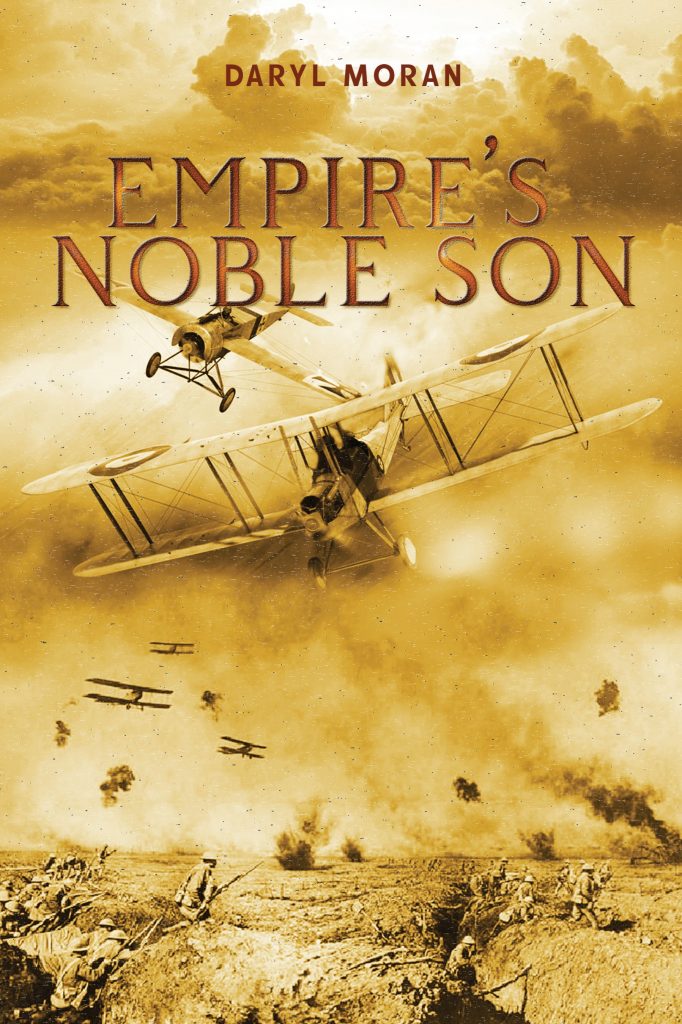Nobility Sanctified In Moran’s Worthy Tribute.
Moran’s challenge, in his worthily thoughtful tribute to Lyle Buntine’s short life, is to bring into focus the treasure-trove of letters written by an old, or not-so–old, Caulfield Grammarian, Lyle Buntine, whose short life ended in June 1917.

Inspiring Publishers
Moran skillfully blends Lyle’s letters and memorabilia treasured over the years by the Buntine family, with a range of sources, to create the lived experiences of Buntine who enlisted in the AIF, but joined the British Army in order to join the Royal Flying Corps.
Not only does Moran capture the excitement and heroism of flying above the Somme over the critical months July to September 1917, he also captures the aura of a private boys’ school education in the 1900s, seeking to translate achievement on the sporting fields, with achievements in battle and entrees into British Society during the war.
Moreover, adroitly and quite movingly, Moran extracts from the letters, sangfroid descriptions of close encounters with the Huns.
Another time, I tackled a big two-seater German. He was a good way above me to start with and we were both firing hard…He had got a bullet in my petrol-tank…I thought for a moment or two that it was all up; but luckily another of our machines turned up and so allowed me to cross the lines which were not far away… We had to cross the line rather low and the Germans turned field guns on us and I could hear the whistle of rifle bullets fired from the trenches at us. It was quite an experience and I thanked God when I was safely down.
Moran leaves us wondering why this young Australian makes light of the obvious angers and horrors of war. Does Buntine describe these encounters with the enemy in a sanitized way, so as not to encourage his family to worry about his well being? Or do these descriptions, while seemingly understated, convey the obvious dangers faced by Buntine each time he flew.
When a shell bursts near you in the air, you hear one loud bang and that is all. On the ground, however, after the burst you can hear the reverberations and echoes, which seem to magnify the sounds. On the whole, though, I don’t think I should mind the shells much on the ground because you can always comfort yourself…that you haven’t got far to fall if you get hit.
The contemporary reader might indeed ponder the fact that Buntine remains unquestioning of the manner in which the war was being conducted and the huge loss of life he must have seen.
While Moran has described Buntine’s uncritical attitude to the Anglo-Australian war effort, he does take on the psychological impact the war had on Buntine. He describes Buntine’s convalescence after he suffered a serious arm injury in combat and notes that while Buntine overcame his physical injury, he was also suffering from physical traumas, then described as Traumatic Neurasthenia, now described as PTSD.
The importance of Moran’s historical piece is that it brings to life the thoughts and ideals of a young man living in Melbourne shortly after Australian gained its independence. At this time, Buntine emerged from a school very much modeled on British schools of the time, lived in a society still dominated by links to Britain and saw his duty to serve the Mother Country in a European war.
Young Australians in the 21st Century would not understand this loyalty or the training of personal characteristics that inspired it. Regardless, and perhaps ironically, Moran’s book invites us to take pause and to align ourselves more closely with its appraisal of young Lyle Buntine as indeed, an inspiration for the ages.
Dr Jeanne Shaw
Founding Principal of the Sandridge School, Williamstown
Former Deputy Head of Toorak College
Former VCE English Examiner
July 2019
Contact MHHV Friend about this article.






